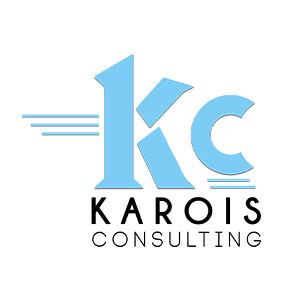We may think leading projects for a big company is easier than leading projects for smaller businesses. I think consultants sometimes go into engagements with small entrepreneurs a bit presumptuously. So, imagine it’s your first day at a small company, no more than five employees and you have been asked to deliver a project. Right here it would be good to make a distinction between the types of consultants that can walk through the doors.
A consultant with deep technical expertise in a particular area may have an easier ride because they are selling and they own the knowledge, technology, etc. E.g., Creating an advertisement. The entrepreneur will probably bubble over with so many ideas and you’ll run short of money and time. But when a project manager or general business consultant walks in it’s a little different because they are not actually doing the work (or are they) but they are supposed to make it happen, sort of sounds like magic. We’ll go through some of the considerations in approaching the engagement and how to get things going on the right foot. Why do I focus on getting things going? Because winning the client over is critical to a successful engagement.
Most of the points draw from my personal experiences however I am sure that there are other takes on what it is like to work with an entrepreneur:
- Be ready to direct yourself and take the lead – more than likely the entrepreneur hired you because they had a conversation with a friend or investor who suggested they “Hire a project manager” to get complete deliverables. Regardless of the understanding of the work a project manager performs the entrepreneur followed the trusted advice and hired you. Of course, you probably also said some smart things during the process of “getting to know each other”. Be prepared to take the lead: the first conversation may end up being the last where the entrepreneur gives direction or takes charge. Have an approach or formulate one after hearing the client explain the situation, goals and expected outcomes. Be ready to share the very first steps to take. Working with a small educational coaching company one of the co-founders worked closely with me and while they were an expert in the sports education business I provided almost all guidance in software delivery, project management and application launches.
- But be prepared to be managed – though the entrepreneur may not be an expert on the services you provide they still want to make sure all is progressing well. For a few reasons, 1) time is scarce 2) financial resources are tight 3) to catch mistakes early and 4) simply because they are so involved in the work. The client will probably take most of your advice and follow your process, naturally deferring to you. But then they own the results, so small business clients or founders can be very much engaged in day-to-day work; don’t be surprised if you have a daily touch base meeting to stay aligned. Consultants must be able to guide the founder/manager on a process yet accept being closely managed throughout the process. That probably made you dizzy, but it is not to be taken as a lack of trust or micromanagement, the entrepreneur is really trying to learn, understand and get results.
- Context is everything – make no assumptions, more than likely the entrepreneur has tried a few things and they did not work well. The process, solution that was applied before was more than likely 80-90 percent complete and the 10-20 percent extra to make it a reality is the reason you were hired. Understanding company history and background, how it was founded, project inception, vision, relationships with the other team members, passion and interests will be critical to success as the entrepreneur will be into details. You might ask “Isn’t this like any project?”. In initial meetings at a startup, I observed a meeting between a female leader and male counterparts and noticed fear as they addressed her. That interaction set the stage for me to understand the team and decision-making dynamics within the organization helping me tailor my approach. Entrepreneurs are tight on time and often do not want to reinvent the wheel so learn where they are coming from and offer the delta.
- Be prepared to go above and beyond – You are an extra pair of hands; once you start diving into the work you will quickly find out that time is very scarce in a small company. Entrepreneurs wear many hats and if you thought it was hard to meet with senior leaders in a corporation it might be even harder to meet with your entrepreneur or get them to complete important tasks. So be prepared to jump in and keep the work moving or at least offer help on tasks and let them decline. Either way they must be prompted/ reminded, or you might be required to assist in completing the tasks at hand to keep the schedule moving. Make sure this is built into your pricing as well because you will than more than likely bring to the table more than project management or whatever initial set of skills they requested. In working with a small retailer, I found myself taking on tasks like writing user stories for an application features (typically business owners task), simply because the managers were busy attending to immediate customer needs.
- Results over structure – this one is tricky because one would argue that the point of bringing in a consultant is to provide structure. For an entrepreneur that should be more so the case than a large enterprise. I have found that entrepreneurs appreciate structure in the initial stages when he/she is feeling swamped and overwhelmed but once there is a roadmap or indications that things are under control the entrepreneur quickly shifts to looking for results. Remember the entrepreneur also may not have as much cash or rather has one hundred alternative uses for the cash allocated to the consulting expense so be sure to show quick results, don’t overdo the process. Additionally business pressures and dynamics may easily shift the timeline schedule, scope or budget much faster than in a larger company so make sure the client can see your value.
- Keep it simple – this is the litmus test for the consultant. Typically, we bring tools, processes, methodologies etc. engagements but when the client is an entrepreneur the motto is “Keep it simple.” Actually, I believe this one applies to large and small businesses. Whenever a concept, methodology, slide, report etc. males client’s eyes “eyes gloss over” or you get the famed “Mmmmh hmmh”.it Is probably too much. Don’t try to wow the client; the goal is communication and bringing them along the journey considering the many hats they wear in relation to you as subject matter expert, manager, team member. Help them switch hats easy by using clear communication. Never assume what you need to execute an initiative is that they need to understand your work. Entrepreneurs might require a simpler view or different information. For e.g. I have only had to show certain clients the project plan once, no matter how small or large. If they seem overwhelmed with detail, or express that they need more time to review and understand, I never show the plan again though I keep the client fully aware it exists.
While every entrepreneur is different, I believe these fundamentals are helpful and give the consultant the dexterity and needed to build a positive rapport client and deliver in their resource constrained, fast paced context.

